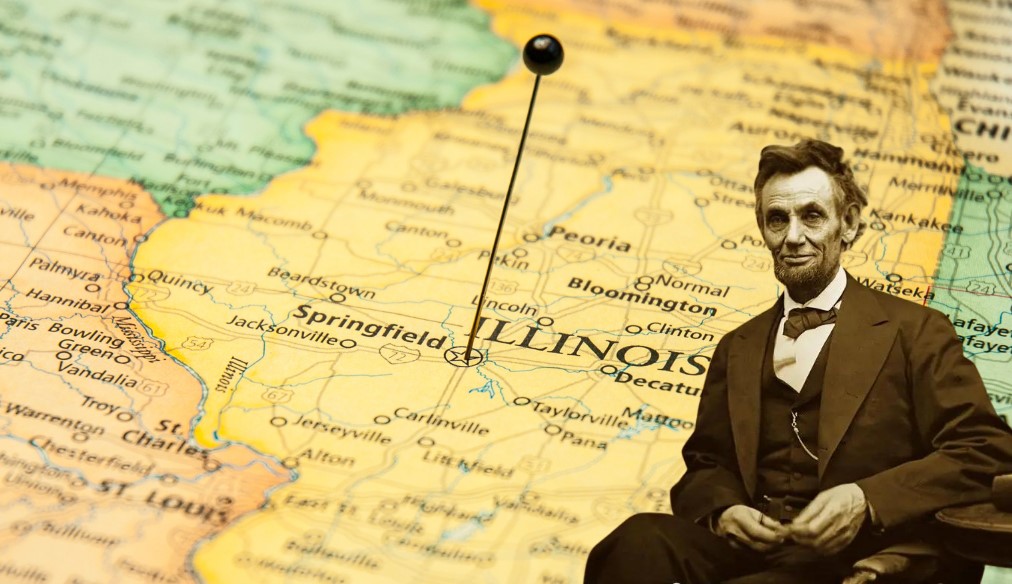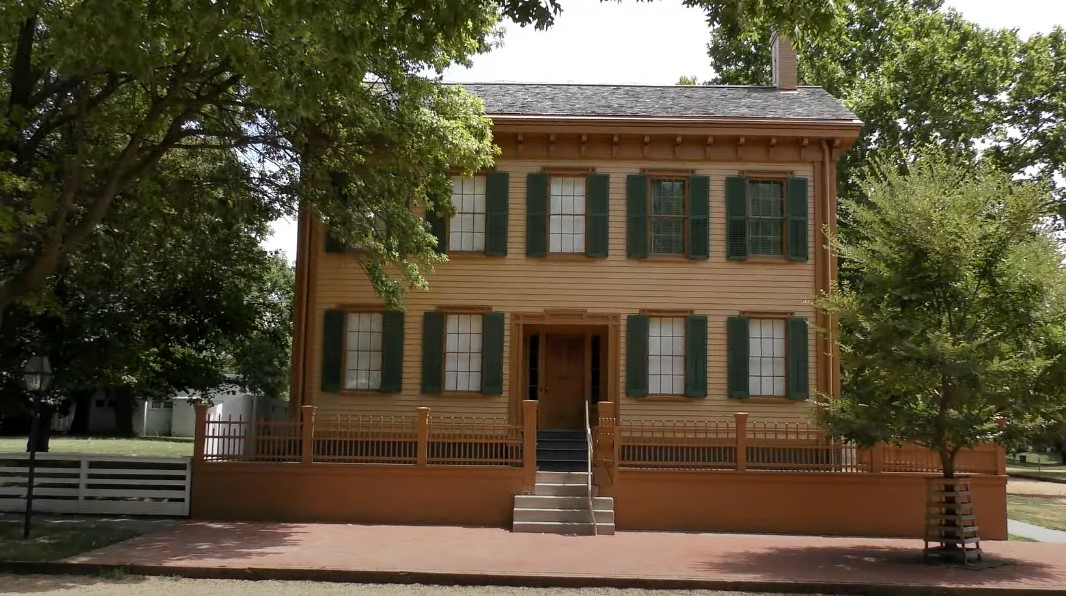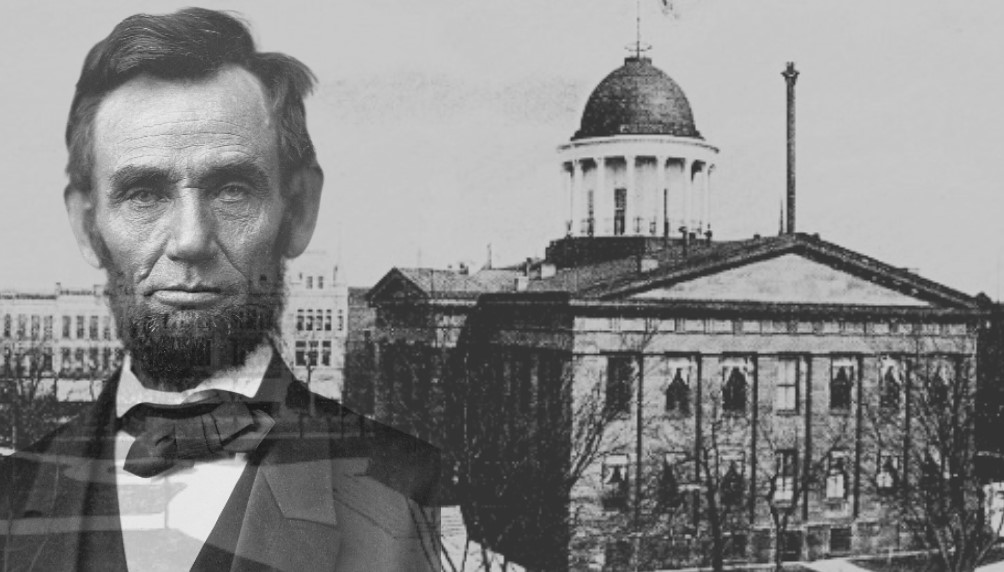The nickname “Land of Lincoln” holds significant meaning, underscoring Illinois’ deep connection to Abraham Lincoln.
Known for his leadership and integrity, Lincoln’s formative years and political career in Illinois cemented his legacy.
Let us talk about it in greater detail.
Lincoln’s Early Years in Illinois

Abraham Lincoln moved to Illinois in 1830 at the age of 21 with his family.
They settled in the small village of New Salem, where Lincoln undertook various jobs that helped shape his character and skills.
He worked as a shopkeeper, which allowed him to interact with many townspeople and hone his social skills.
His role as a postmaster gave him a sense of responsibility and trustworthiness, while his position as a captain in the Black Hawk War demonstrated his leadership abilities.
During his time in New Salem, Lincoln began his self-education in law and politics. He borrowed books and studied diligently, laying the foundation for his future career.
His interest in law led him to become a self-taught lawyer, eventually passing the bar exam in 1836.
Lincoln’s early political aspirations also took root in Illinois, where he began his political journey by serving in the Illinois State Legislature.
These early experiences in Illinois were crucial in shaping Lincoln’s future. They provided him with the knowledge, skills, and connections that would propel him into the national spotlight.
His humble beginnings and relentless pursuit of education and justice endeared him to the people of Illinois and laid the groundwork for his enduring legacy.
Political Career in Illinois
Lincoln’s political career in Illinois began with his election to the Illinois State Legislature in 1834.
As a member of the Whig Party, he served four terms in the legislature, where he gained a reputation for his strong stance against slavery and his commitment to infrastructure improvements, such as the development of the Illinois and Michigan Canal.
His influence in Illinois politics grew, and he developed a close relationship with Mary Todd, whom he married in 1842.
Mary Todd was also deeply involved in politics, and her support and insights were invaluable to Lincoln’s career.
In 1846, Lincoln was elected to the U.S. House of Representatives, where he served a single term. Often, he was in Chicago for sittings of the U.S. District Court.
During his time in Congress, he voiced his opposition to the Mexican-American War and introduced legislation to abolish slavery in the District of Columbia.
The Lincoln-Douglas Debates of 1858 were a pivotal moment in Lincoln’s political career.
Running for a seat in the U.S. Senate, Lincoln engaged in a series of debates with incumbent Senator Stephen A. Douglas.
These debates, focused on the issue of slavery, showcased Lincoln’s eloquence and moral stance against the expansion of slavery.
Although he lost the Senate race, the debates catapulted him to national prominence and set the stage for his successful presidential campaign in 1860.
Lincoln’s political career in Illinois was marked by his steadfast commitment to justice and equality.
His efforts in the state legislature and his rise to national prominence through the Lincoln-Douglas Debates exemplify his profound connection to Illinois and the values he championed.
Legacy in Illinois

After Lincoln’s assassination in 1865, Illinois took great strides to commemorate his legacy. The state became a central hub for honoring the 16th president, with numerous sites dedicated to preserving his memory and contributions.
The Lincoln Home National Historic Site in Springfield, where Lincoln lived from 1844 to 1861, is a well-preserved symbol of his life and work.
Visitors can explore the home and gain insight into Lincoln’s personal and professional life during his years in Illinois.
The Abraham Lincoln Presidential Library and Museum, also in Springfield, serves as a major repository of Lincoln-related documents, artifacts, and exhibits.
The museum offers a comprehensive look at Lincoln’s life, from his early years to his presidency and assassination.
It is a vital resource for historians and the public, ensuring that Lincoln’s legacy continues to be studied and appreciated.
Lincoln’s final resting place is another significant site in Illinois. The Lincoln Tomb in Oak Ridge Cemetery is a grand monument that reflects the state’s reverence for him.
The tomb is constructed from Illinois limestone, symbolizing the state’s contribution to the memorial and its deep connection to Lincoln. This material choice underscores the importance of Illinois in Lincoln’s life and legacy.
Summary
Abraham Lincoln’s profound connection to Illinois is undeniable. His early years, political career, and lasting legacy in the state have left an indelible mark.
Visiting Illinois offers an opportunity to explore Lincoln’s rich history and experience the enduring impact of his life and leadership.

